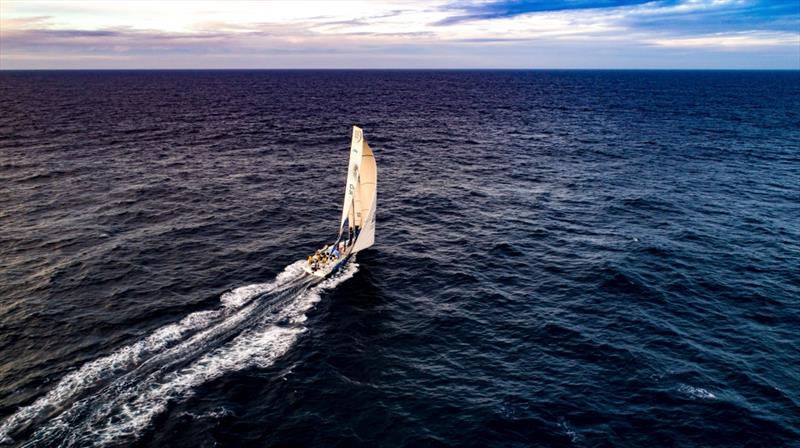
Everything you need to know about micro plastic data collection
by Robin Clegg 2 Jan 2018 14:00 GMT
2 January 2018

Volvo Ocean Race: Leg 3, Cape Town to Melbourne, day 10, on board Turn the Tide on Plastic © Jeremie Lecaudey / Volvo Ocean Race
GEOMAR's Dr Toste Tanhua explains just what the boats are looking for when they collect data around the world – and why it's so important.
In 2017-18, the Volvo Ocean Race is working closely with sustainability partners around the world to help spread the message of the growing problem of ocean health.
The Volvo Ocean Race isn't just a world-class sailing race around the planet – it's an opportunity for innovation, exploration and scientific discovery.
Made possible thanks to the support of Volvo Cars and a scientific consortium including NOAA (National Oceanic and Atmospheric Administration), JCOMMOPS (UNESCO-IOC), GEOMAR and SubCtech, the Science Programme consists of meteorological data analysis, drifter buoy deployment and micro plastic data collection.
As the fleet prepares to depart Melbourne, Australia, for Leg 4 of the race, we chatted to scientist Dr. Toste Tanhua, who works at www.geomar.de/en/, an ocean research institute in Kiel, Germany.
GEOMAR are working closely with the Volvo Ocean Race to track and analyse groundbreaking micro plastic data being collected by the racing boats in some of the world's most remote places.
What data are the teams collecting on each leg of the race?
The teams are gathering meteorological and oceanographic data and the information they collect will help us understand weather patterns and changes in climate. Additionally, the Turn the Tide on Plastic boat carries instrumentation that measures CO2 and collects samples of micro plastics in the oceans. This can give us a better idea of how much plastic is polluting our seas.
Why are the boats collecting scientific data?
They are racing through areas of our oceans that are often inaccessible to the world's climate scientists. Indeed, some of the waters the boats are going through are so remote that they have never been sampled before so any new data that gives us an insight into what they contain is incredibly valuable.
What are micro plastics?
Micro plastics have broken up from bigger pieces of plastic into thousands of smaller ones that range from one millimetre to less than a tenth of a millimetre in diameter. The smaller pieces of plastic are digested by tiny marine organisms that are eventually eaten by bigger fish, such as tuna, mackerel and sardines. These can end up on our dinner plate.
What happens to these samples?
They are collected at the end of each leg of the race and transported to Kiel in Germany where they are analysed in a laboratory. One problem is that they can be very hard to spot because the micro plastic can be covered in tiny plankton.
What have you found so far?
We analysed the filters from the Mediterranean leg of the journey and found between 200 and 300 particles of micro plastic per cubic meter of seawater. It's going to be very interesting to see what the filters from the trip through the Atlantic look like. But this is cutting edge science so we're really entering into unchartered territory.
How much is known about micro plastics?
Very little. We hope to increase our knowledge base on where the micro plastics are concentrated in the oceans as currently we can only account for one per cent of the plastic we think is in the ocean – that leaves another 99 per cent to study.